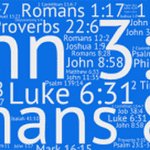I don’t believe in perfection. I don’t believe in flawless things. I don’t believe in purity. I don’t believe in “pure goodness” because it implies the opposite: “pure evil.” I don’t think such a thing exists.
I don’t believe the Gods are pure and perfect, without a flaw. That’s the sort of language that is used to speak of Jesus, and promotes an unattainable ideal. I don’t think humans are less than the Gods for being imperfect. I think that’s a dangerous theology to promote. I am not a flawed imperfect being cringing before a flawless God. I am a mortal striving for excellence worshiping immortal beings greater than myself, who also strive for excellence.
My Gods make mistakes. Sometimes they do the wrong thing. Sometimes they even kill people. I can’t help it if that bothers you, but I’m not seeking your approval on my faith.

When Hades seduced Kore, her mother Demeter halted the seasons. The vegetation of the earth began to die. This is a bad thing. Hades seducing a woman away from her family and against her mother’s wishes is a bad thing. Letting humanity and other living things suffer because you have a personal grief is a bad thing. But these things are understandable. Who hasn’t disappointed their family or broken some social rule over love? Who hasn’t let their duties slip at a time when they were experiencing profound personal sorrow?
The problem with viewing the Gods as flawless and perfect is that you run into the problem of theodicy. How can perfect beings allow so much suffering in the world? A perfect, flawless Poseidon who only does purely good things would not allow children to drown in his waves. If Zeus is perfectly good, then why does lightning start house fires? Are they punishing humanity’s imperfection?
The Gods are not supernatural. Being created by the Cosmos, they are subject to the laws of the Cosmos. One of those laws is evolution. The Gods evolve and change as surely as we do, and they influence our evolution. A perfect eternal being cannot evolve. The perfect cannot become more perfect. An eternal being would predate the Cosmos, and the myths tell us the Gods are immortal and created, which is not the same thing as eternal.
The Gods are older than us. Wiser, more powerful and undying beings. They recognize their own evolution and striving in our yearning for excellence. They aid us in this, and they sometimes sacrifice some of themselves in order to aid us. I believe they are worthy of worship, not because they are perfect, but because they are gloriously imperfect. They balance each other, watch the boundaries, step in and correct each other when necessary. Just as Nature balances itself, and human society balances itself, so the Gods balance each other. They are not static but as dynamic as everything else in nature.
You can try to wipe away the myths. You can sanitize religion. But then you step into the same space as Christians who rationalize away the fact that Yahweh tortured Job to win a bet with an inferior being. You can’t criticize them for doing that, or mock them for it. You can’t call Yahweh a violent God and then turn around and say the Pagan myths aren’t true. You can’t hold a double-standard.
For me, the imperfection of the Gods makes perfect sense. Humans are not called upon to be perfect, we are to strive for excellence. Striving means you make mistakes but you don’t give up. The Gods are different from us in so many ways. They are bigger, wiser, more powerful, and more importantly, immortal. What they have in common with us is that they also evolve and strive for excellence. They aid us because they see us making the same reach for excellence in our short mortal lives. They are not perfect beings demanding the impossible from mortals, and blaming us when we fail to meet that impossible mark, and they are not busy dividing the world into “good” and “bad” categories. They strive for excellence, and aid us when we do the same.
















